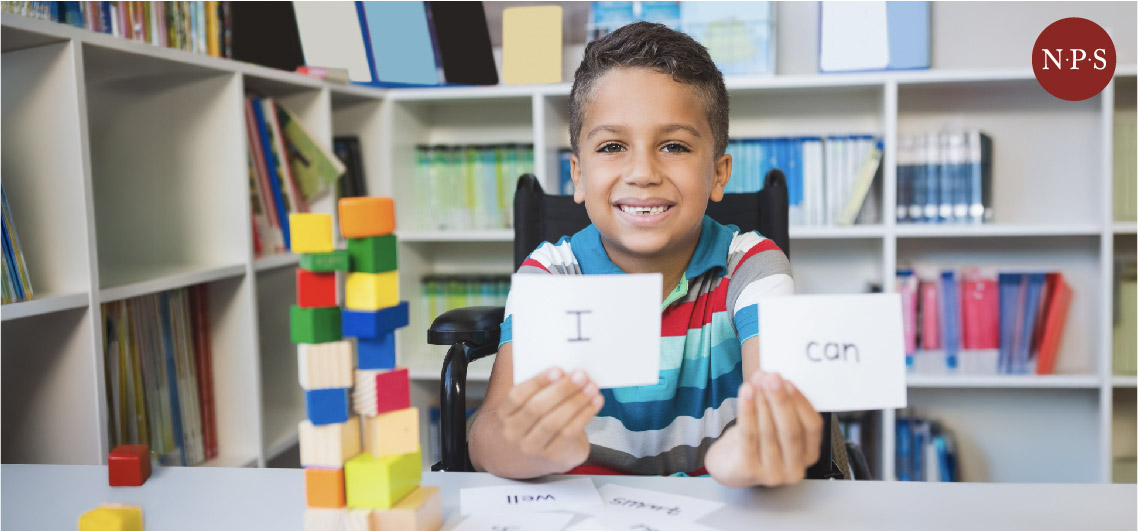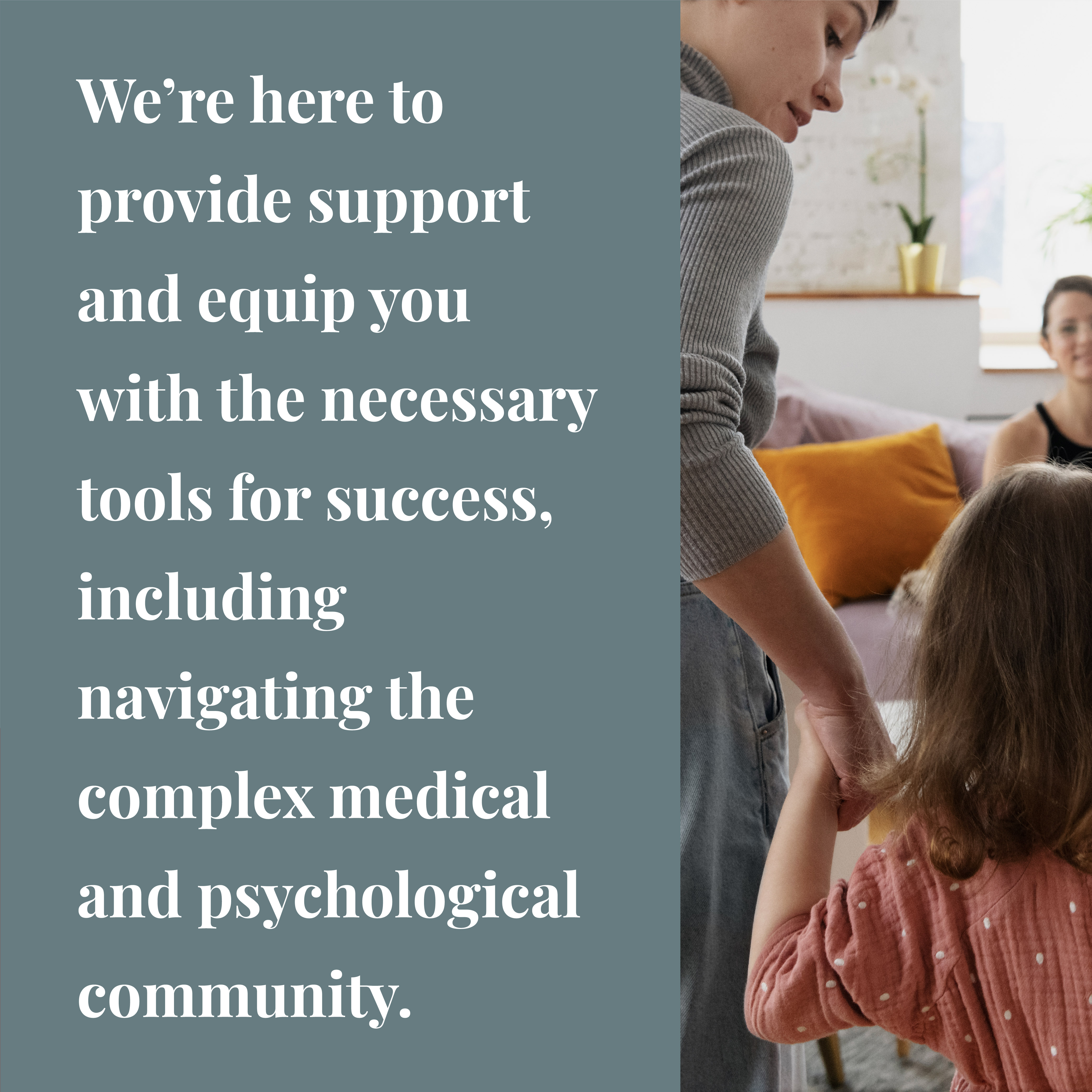Supporting a Child with Cognitive Disabilities
For some parents, learning that their child has a cognitive disability causes confusion and even fear. For others, it’s a relief to finally have a diagnosis. No matter where your experience falls on the spectrum, knowing what to expect and how to support your loved one makes the path forward seem more manageable.

What Does It Mean for a Child to Have a Cognitive Disability?
“Cognitive disability” is a broad term that encompasses everything from dyslexia to ADHD, autism spectrum disorder, brain injury, and dementia. At NPS, we frequently work with children who suffer from those conditions, as well as those who have:
- Intellectual disabilities
- Developmental disabilities
- Learning disabilities
These types of disabilities affect every child differently. However, it’s common for there to be some range of deficits in reasoning, problem-solving, academia, and judgment. It’s also common for these children to face challenges in their social lives.
Around 5% of the population have some form of cognitive deficit. Because it is not overly common, you may feel unprepared or unequipped to help your child thrive. Please know the unconditional love and support you provide your child is what they need most. In other words, you are already well on your way to giving your loved one the life and opportunities they deserve.
What Should I Do If I Believe My Child Has a Cognitive Disability?
Some cognitive disabilities, particularly those caused by genetic or chromosomal conditions, can be diagnosed at birth. Others take longer to identify. Early intervention is crucial for the long-term success of your child. That’s why we recommend speaking to your primary care provider if you notice any sign of cognitive impairment. Common symptoms to watch out for include:
- Developmental delays
- Behavioral issues
- Memory problems
- Poor problem-solving skills
- Chronic sleep and wake cycle issues
- Irregular mood or personality changes
Sometimes, a cognitive disability is the result of genetics. Other times, emotional or physical trauma, exposure to drugs or alcohol, infection, or exposure to toxins is the culprit. In any case, your PCP can put you on the path to receiving an accurate diagnosis. There are many cognitive tests, functional assessments, and medical evaluations designed to identify these types of disabilities.
What Are the Treatment Options Available?
The best treatment plan will depend upon your child and the severity of their diagnosis. However, there are many great options available. Here are some of the treatments designed to help children with cognitive disabilities live rich and full lives:
Educational Support and Intervention
There is a long list of therapies and interventions available for children with learning, intellectual, or cognitive disabilities. These include everything from Individualized Education Plans (IEPs) to assistive technology, differentiated instruction, and 504 plans. Above all, the best educational support plan is one in which educators and parents maintain open communication with one another.
Medication
There are no medications that can cure a cognitive disability. That said, medication can help manage certain symptoms of a disability or disorder. For example, medication is sometimes recommended for individuals who suffer from poor sleep, anxiety, or mood dysfunction. At NPS, we do support the use of medication when necessary–however, we always strive to provide as natural a treatment as possible.
Family Education
Even the most mild of cognitive disabilities affect a child’s family. With this in mind, family education is designed to help a child’s loved ones learn how to best provide guidance and support. Children with families who advocate for their needs are more likely to have positive outcomes.
Alternative Treatments
There are many natural and complementary treatments available for children with cognitive disabilities. For our clients, we have found the use of supplements, dietary changes, neurofeedback therapy, and other alternative treatments often have positive effects.
Your child’s treatment plan will likely be multifaceted and will change as they grow. Developing a supportive community of teachers, counselors, and loved ones will only strengthen your child and help them to thrive.
How Can I Support My Child at Home?
The best treatment for children with cognitive disabilities is home support. We’ve talked about family education and how understanding your child’s diagnosis can help you better provide and care for your loved one. But is there more you can do to help your child thrive? Here’s what we recommend:
Be Patient and Hopeful
A cognitive disability diagnosis may change the dreams and aspirations you have for your child. But we’ve learned from clients in these situations that life is often more complicated and more beautiful than we can imagine. Staying patient, positive, and hopeful can help your child find beauty despite their challenges.
Encourage Independence and Accountability
By encouraging independence and accountability, you can help your child develop life skills like problem-solving, self-care, and decision-making. We recommend a chore chart that fits their level of ability to establish a routine and help them develop a stronger sense of self.
Actively Participate in Their Education
Even with an IEP and/or 504 plan, your child may require additional educational support from parents and teachers alike. Talk to your child’s educators about accommodations that can be made for them and ask how you can support their learning at home.
Raising a child with a cognitive disability can be equal parts joyous and challenging. If you are feeling overwhelmed, we recommend reaching out to one of the many support organizations for families like yours.
When Should I Consider Counseling for Myself and/or My Child?
For families in need of support, counseling provides compassionate and comprehensive guidance. Several NPS counselors specialize in treating children with disabilities, along with their families. Together, we can work to strengthen family bonds, learn needed coping skills, build resiliency in siblings, and find other ways to navigate the special needs journey with success.
If you’re ready to meet with a member of our team, give us a call. We can set up a free 15-minute meet and greet so we can talk through your needs and match you with the appropriate counselor. Reach us at (815) 477-4727.
Are you ready to take the next step?
CONTACT US AND SCHEDULE YOUR FIRST APPOINTMENT TODAY.







